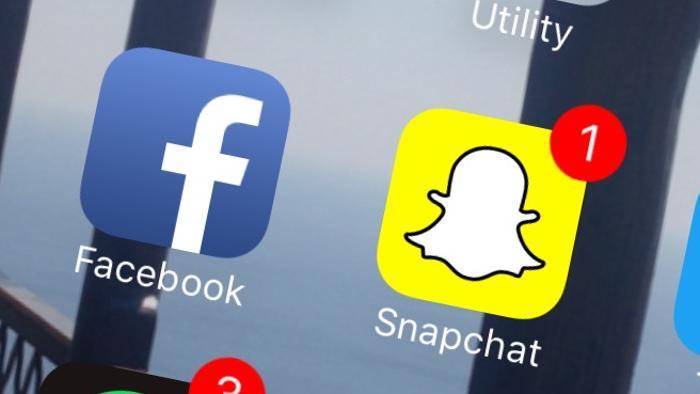Ever since Evan Spiegel’s start-up came out with its decision to go public this year, a barrage of problems has hampered its growth and maintenance, the most damaging has only worsened in the past few months – plagiarism.
In July, Facebook-owned Instagram unveiled its new feature named ‘Stories’, prompting reactions from the world over about its blatant attempt to gain from Snapchat’s concepts, aside from the shock inspired from Facebook’s decision to not even name it differently from Snapchat’s identical feature.
Yet, a constructive argument can’t really be formulated against them for the move as plagiarism has unfortunately become the norm in today’s technological landscape and something Facebook itself was birthed out of.
That’s also the only reason why anyone knows of Myspace’s existence.
But Mark Zuckerberg’s company took no heed to the few words of condemnation that were around and did more of the same.
Facebook launched a trial version of ‘Stories’ for its own website in select territories last month, while clearing the way for its messaging subsidiary WhatsApp to do the same this week.
And it’s not the first time Facebook’s done something like this. In 2013, it launched ‘Poke’ which attempted to replicate Snapchat’s core functionality, only to fail miserably at it and be shut down within an year.
Then, Facebook had tried at least inject some originality into it, though its failure disillusioned the company and somehow convinced them that if they were to beat Snapchat, they would have to clone it.
This means that Snapchat’s staple feature of temporary – termed the more educated ‘ephemeral’ by some analysts – video sharing, one which it pioneered and prides itself upon, is no longer its own.
The fact that it’s been cloned by the three largest social networks on the planet only adds to its woes.
For many, this is a calculated move on Facebook’s part to bury Snapchat, a theory fuelled by the company’s decision to create ‘Stories’ for WhatsApp too, despite there having never been a necessity to do such for a messaging app. And it might be true, as Snapchat and Facebook share a much publicised history, for the former denied an offer significantly better than the ones even Instagram and WhatsApp couldn’t afford to refuse in 2013.
That might seem like an awful decision in the coming months, but that’s where Snapchat can find hope too, for Facebook could’ve always completely ripped Snapchat off like it’s now and yet – it didn’t.
The fact that Facebook had sought to purchase Snapchat might indicate that the company’s structure, at the time, was incapable of replicating its features without stretching itself too much and that buying the company out seemed like an easier option.
But now that Facebook is going for it, the measure will probably come at the cost of a greater budgetary expenditure than ever before, especially considering how its been extended to two of its subsidiaries.
This could, considering Facebook’s inexperience regarding this field, trigger occasional service lapses and outages, which are worth gold in Silicon Valley.
Also, it’s no doubt hard to make your feature match that of an application birthed for its facilitation by a group of people solely dedicated to it.
Mark Zuckerberg once summarised it himself – “We just believe that an independent entrepreneur will always beat a division of a big company.”
Thus, Snapchat might remain on top of its game and be the prime platform for ephemeral video sharing, while its user base will remain largely untouched, though Facebook’s measure will certainly eviscerate any possibility of it witnessing significant growth – something that us Indians too might be partly responsible for.
People in developing nations like ours make up by far the largest group contributing to the growth of various social media networks and it’s obvious that any first-time internet user will first fulfil his/her basic necessities such as messaging or interacting with friends/colleagues, all the things that Facebook and its various subsidiaries facilitate better than anyone else.
Once familiarity has been achieved is the stage when applications such as Snapchat enter the picture and users flee toward for the sake of satiating their curiosity about their features, though that too is now being provided by Facebook and robs them off a multitude of potential users.
Snapchat’s struggle thus is to remain relevant and prevent itself from being forced into a spot where its only purpose is to cater for a first-world audience.
In this aspect, Snapchat’s tale bears uncanny resemblance to that of Twitter, which hasn’t grown in almost two years and seen dwindling usage from its old users due to a lack of new faces for them to interact with and declining cultural relevance.
Even more haunting’s the fact that both startups issued a near identical reprimand to aspiring investors during their IPO’s – that they might not even come close to making a profit in their entire existence.
Evan Spiegel’s company is etching closer to fulfilling that prediction with each passing month and it’s obvious that Snapchat profits won’t see the light of the say if applications that posses billions of combined users initiate a virtual smear and cloning campaign against it.
In other news, Snapchat’s soon to be traded stocks are oversubscribed and deemed to be one the most exciting stock prospects related to tech since (guess who) Facebook.
But as anyone versed in the financial markets can tell you, hype doesn’t always last, and that’s something even more established than the lack of originality in Silicon Valley.
